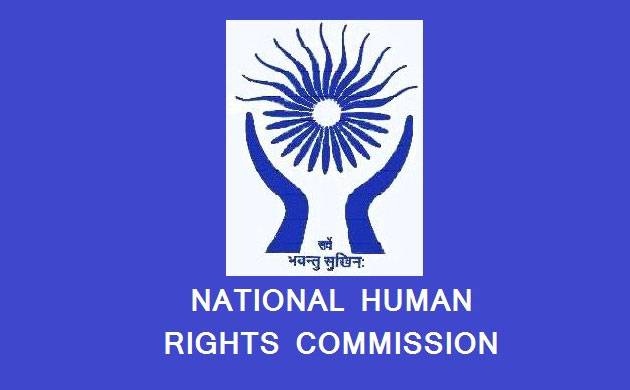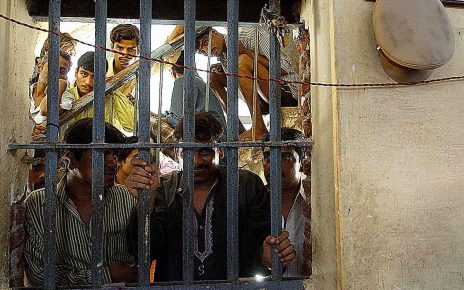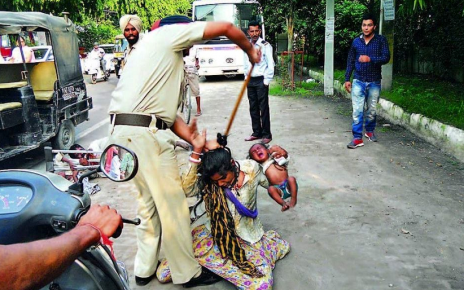New Delhi: On the Foundation Day (12 October) of the National Human Rights Commission (NHRC), the National Campaign Against Torture (NCAT) urged the NHRC to recall its order dated 5 April 2010 in Case No. 416631/24/26/0809/JCD and subsequent directions issued to the States and Union Territories including on 6th May 2013 that under Section 176(1A) of the Criminal Procedure Code (Cr.P.C) amended by Act 25 of 2005, “an enquiry by Judicial Magistrate or Metropolitan Magistrate is mandatory in only those cases of custodial death where there is reasonable suspicion of foul play or well founded allegation of commission of an offence. All other cases of custodial death where the death is natural or caused by disease may be enquired into by an Executive Magistrate”.
Section 176(1A) of the CrPC states that “Where,— (a) any person dies or disappears, or (b) rape is alleged to have been committed on any woman, while such person or woman is in the custody of the police or in any other custody authorised by the Magistrate or the Court, under this Code in addition to the inquiry or investigation held by the police, an inquiry shall be held by the Judicial Magistrate or the Metropolitan Magistrate, as the case may be, within whose local jurisdiction the offence has been committed.”
“The use of the word “shall” makes Section 176(1A) CrPC mandatory. There is no question of “ifs and buts” irrespective of how death, disappearance or alleged rape takes place in custody. To state that “an enquiry by Judicial Magistrate or Metropolitan Magistrate is mandatory in only those cases of custodial death where there is reasonable suspicion of foul play or well founded allegation of commission of an offence” implies arriving at a certain conclusion on foul play or commission of offence even before the inquiry provided under the law i.e. Section 176(1A) CrPC is conducted. It is putting the cart before the horse and leaving the determination of whether there is foul play or commission of offence to the accused and/or the authorities whose foul play or commission of offence that Section 176(1A) seeks to address.” – stated Mr Suhas Chakma, Coordinator of the NCAT.
The NCAT stated that the directions of the NHRC had a significant impact on the refusal of the State authorities to not conduct inquiries by judicial magistrate into the cases of custodial death. As per the “Crime in India” Annual Reports published by the National Crime Records Bureau under the Ministry of Home Affairs, 938 deaths or disappearance in police custody were reported from 2010 to 2019 out of which judicial inquiry was ordered only in 276 cases i.e. only in 29% cases. In an overwhelming 71% of cases of “death or disappearance of persons in police custody”, judicial inquiries were not ordered, among others, because of the leeway or wrongful interpretation of Section 176(1A) CrPC provided by the NHRC.
Table: Number of death or disappearance of persons in police custody and judicial inquiries order as per the NCRB Annual Reports
| Year | Death or disappearance of persons in police custody without court remand | Judicial Inquiry ordered or conducted | Death or disappearance of persons remanded to police custody by court | Judicial Inquiry ordered or conducted |
| 2010 | 45 | 9 | 25 | 7 |
| 2011 | 75 | 22 | 29 | 10 |
| 2012 | 71 | 21 | 38 | 6 |
| 2013 | 97 | 30 | 21 | 6 |
| 2014 | 61 | 14 | 32 | 11 |
| 2015 | 67 | 19 | 30 | 12 |
| 2016 | 60 | 0 | 32 | 28 |
| 2017 | 58 | 8 | 42 | 5 |
| 2018 | 46 | 21 | 24 | 7 |
| 2019 | 53 | 29 | 32 | 11 |
| Total | 633 | 173 | 305 | 103 |
“Since the NHRC as the relevant authority monitoring custodial deaths in India including reporting to it custodial deaths within 24 hours had issued directions that it is not mandatory to conduct judicial inquiries under Section 176(1A), the State authorities/police no longer felt the necessity to conduct mandatory judicial inquiries. The fact that the NHRC after its order on 5th April 2013 further issued specific directions to all Chief Secretaries of all the States/UT on 6th May 2013 that it is not mandatory has come to mean that it is not necessary to conduct judicial inquiries unless there is suspicion of foul play or well-foundation allegation of commission of an offence.” – further stated Mr Chakma.
The NCAT also urged the NHRC to issue fresh directions for mandatory judicial inquiries in each and every case of death, disappearances and alleged rape in custody as provided under Section 176(1A) of the CrPC.




